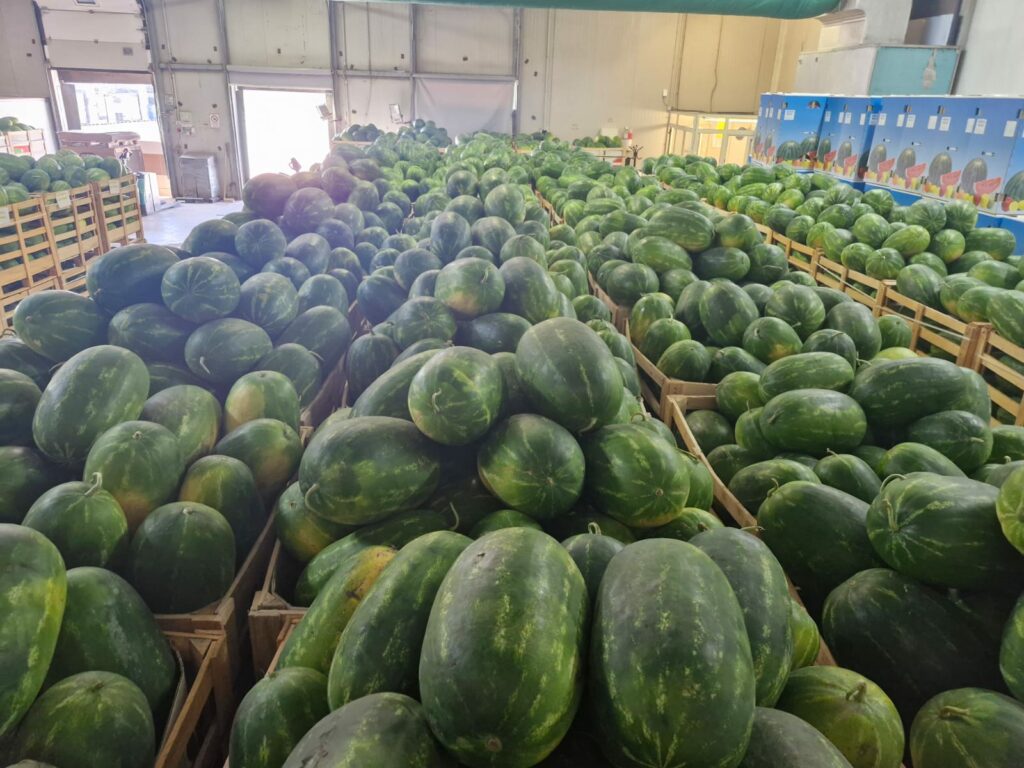Watermelon, also known as melon, is a summer fruit with juicy red flesh, rich in black seeds, and a smooth or striped green rind.

Due to its high water content, watermelon is incredibly thirst-quenching and refreshing, making it perfect for hot summer days. Its high lycopene content, a powerful antioxidant, helps reduce the risk of cardiovascular diseases and certain types of cancer. Watermelon is also an excellent source of vitamins A and C, which support skin health and the immune system. It is ideal for those seeking natural hydration, maintaining healthy skin, and boosting immune function. However, those with diabetes should consume it in moderation due to its natural sugars, and individuals with kidney issues should limit their intake to avoid excessive fluid accumulation.
TYPICAL SEASONALITY
Watermelon seasonality varies by region, but it is generally considered a summer fruit. Here is an overview of its typical seasonality:
- SummerJune to August
- Late SpringMay (beginning of the season in warmer areas)
- Early Autumn:September (end of the season in some regions)
Watermelon seasonality varies by region, but it is generally considered a summer fruit. Here is an overview of its typical seasonality:
- SummerJune to August
- Late SpringMay (beginning of the season in warmer areas)
- Early Autumn:September (end of the season in some regions)
During these months, watermelon reaches its peak quality and sweetness. While imported watermelons are available in other seasons, the summer period is when local watermelons are freshest and most flavorful.
Nutritional Values
| Nutrient | Value |
|---|---|
| Energy | 30 kcal |
| Water | 91.5 g |
| Protein | 0.6 g |
| Fat | 0.2 g |
| Carbohydrates | 7.6 g |
| Fibre | 0.4 g |
| Zuccheri | 6.2 g |
| Vitamina A | 569 IU (17 µg) |
| Vitamina C | 8.1 mg |
| Vitamina B6 | 0.045 mg |
| Magnesio | 10 mg |
| Potassio | 112 mg |
| Calcio | 7 mg |
| Fosforo | 11 mg |
| Ferro | 0.24 mg |
